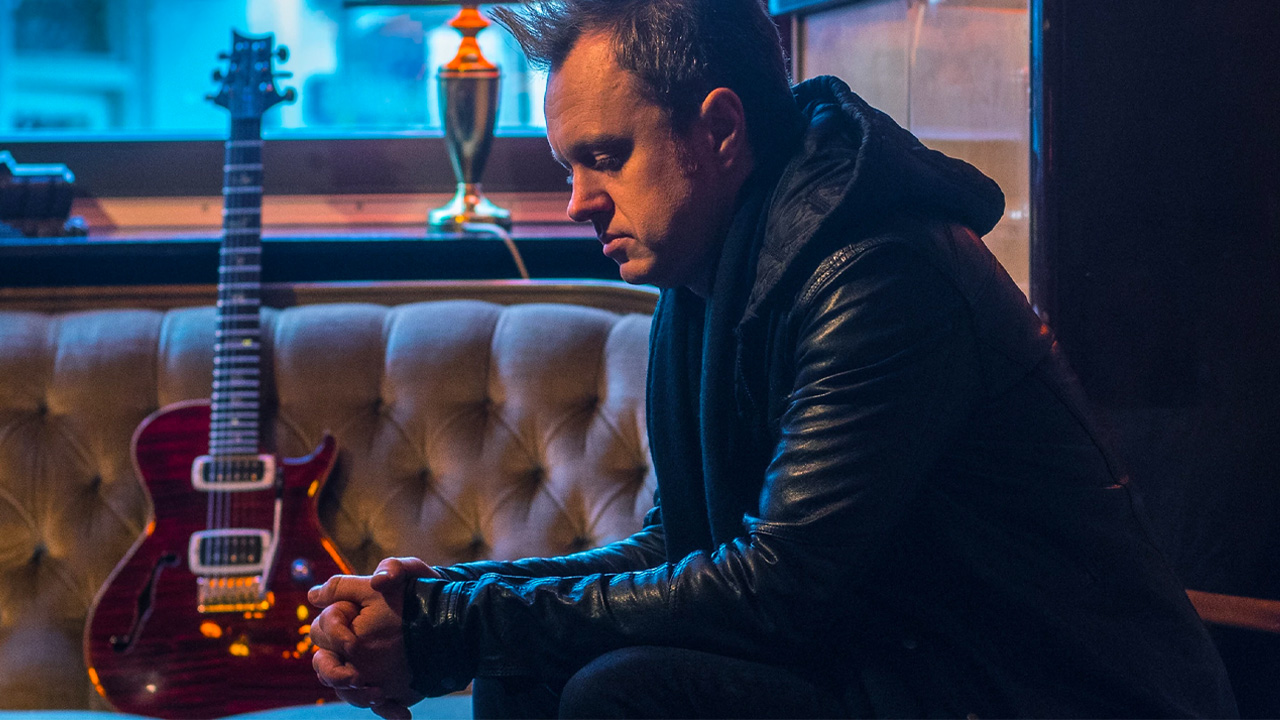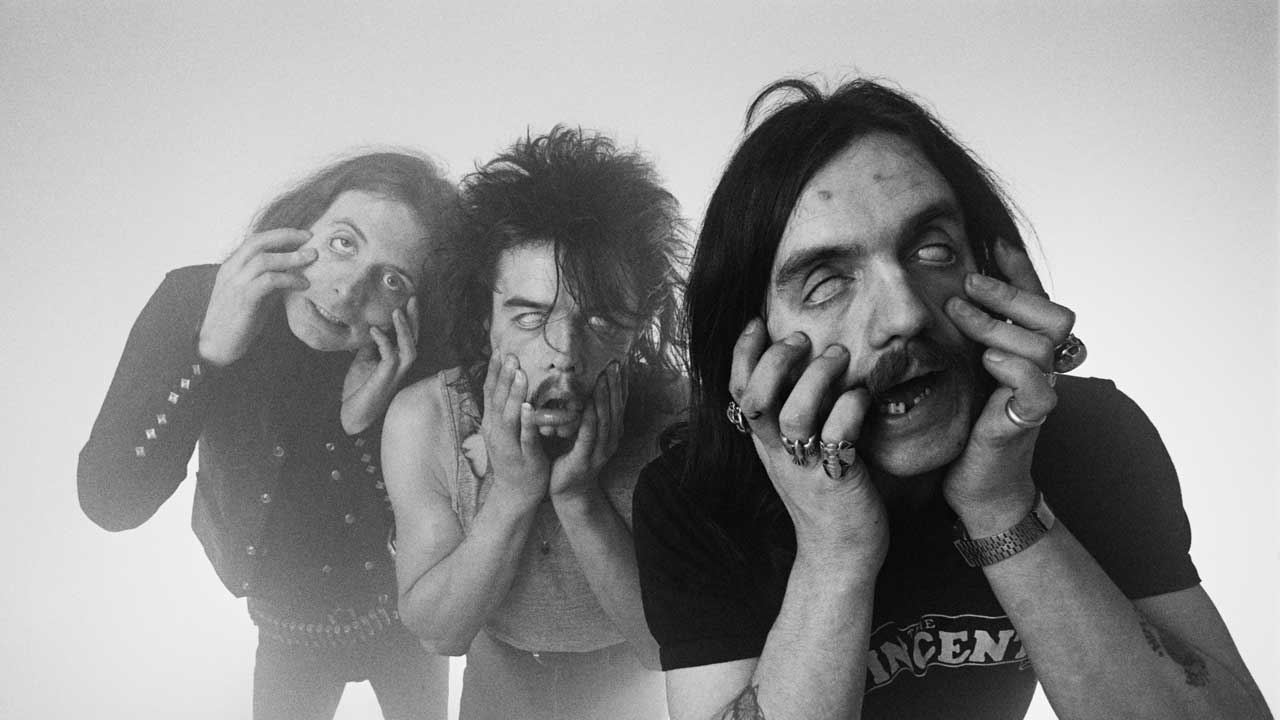Simon McBride on joining Deep Purple, setbacks, and the house fire that almost killed him
The Belfast guitarist's new solo album, The Fighter, is out now

Select the newsletters you’d like to receive. Then, add your email to sign up.
You are now subscribed
Your newsletter sign-up was successful
Want to add more newsletters?

Every Friday
Louder
Louder’s weekly newsletter is jam-packed with the team’s personal highlights from the last seven days, including features, breaking news, reviews and tons of juicy exclusives from the world of alternative music.

Every Friday
Classic Rock
The Classic Rock newsletter is an essential read for the discerning rock fan. Every week we bring you the news, reviews and the very best features and interviews from our extensive archive. Written by rock fans for rock fans.

Every Friday
Metal Hammer
For the last four decades Metal Hammer has been the world’s greatest metal magazine. Created by metalheads for metalheads, ‘Hammer takes you behind the scenes, closer to the action, and nearer to the bands that you love the most.

Every Friday
Prog
The Prog newsletter brings you the very best of Prog Magazine and our website, every Friday. We'll deliver you the very latest news from the Prog universe, informative features and archive material from Prog’s impressive vault.
In March, as the announcement came of Simon McBride joining the Deep Purple line-up (standing in for Steve Morse), the Belfast guitarist was already blowing his newly disposable income. “Can I handle global rock stardom?” he says, repeating the question put to him. “Oh yeah. Completely. I’ve already got the sports car ordered. When I got the message that I was joining Deep Purple, I went straight down to the Lamborghini garage. Like: ‘I’ll have one of those...’”
He’s joking. Of course. It’s not that McBride’s new paymasters don’t offer Lamborghini-sized wages, or that the guitarist wasn’t raring for his first show with Purple, at Tel Aviv’s Menorah Arena at the end of May. But, at the age of 43, the Northern Irishman has perhaps been around the block too many times – suffered too many kickings and snatched-away cigars – to let his feet entirely leave the ground.
In evidence, consider the other prong of today’s interview. McBride’s new solo album, The Fighter, is flavoured as much by 80s rock as by the blues he’s mostly tagged with – and it’s aptly titled. “I suppose you could say the fighter is me,” he considers. “The music industry can be a hard, cruel place. But I just don’t stop. Music is like a drug – once it gets you, you’re screwed!”
The Purple gig isn’t McBride’s first fairy-tale break. After a reclusive childhood, spent skipping school to grind out Steve Vai’s infamous 10-hour guitar workout, he was 15 when he won Guitarist magazine’s competition for young players, smashing Joe Satriani’s slippery Surfing With The Alien instrumental at Wembley Conference Centre.
“The prize was this hideous pointy guitar with the dodgiest picture of the Grim Reaper,” says McBride, who was already endorsed by the high-end US guitar builder Paul Reed Smith. “And I’m looking at it, thinking: ‘What do you get if you lose – two of these?’”
Still, there was the prestige, speeding him into the mid-90s line-up of Belfast metallers Sweet Savage (where he replaced Def Leppard’s Viv Campbell), then the touring band of Commitments soul shouter Andrew Strong. These were his prime drinking years, he says: “Now I’m very civilised.”
Getting off the mark in his own right was tougher. McBride was skinned by fast-talking industry types and held in stasis for years by agents whose promises turned to ashes. “Let down, ripped off, all of the above,” he says. “But it’s all good inspiration for writing songs.”
Sign up below to get the latest from Classic Rock, plus exclusive special offers, direct to your inbox!
The most powerful song on McBride’s 2012 album Crossing The Line, titled No Room To Breathe, documented the darkest episode of all. One night, he thinks around 2002, he awoke with his future wife to find their Belfast flat thick with smoke; an electrical fire had started somewhere in the building. In their rush to escape, McBride knocked the key out of the door, was trapped inside, and everything faded to black.
“I was so consumed with smoke inhalation that I passed out. I don’t know whether I actually died or not, but they had to resuscitate me in the middle of the street to bring me back. We were both badly burnt. My wife was on a ventilator for forty-eight hours and I was in hospital for nine weeks.”
A decade after Crossing The Line, The Fighter is just as powerful in its own way. “I wanted to do what was me,” says McBride. “Y’know, I grew up in the eighties, so I love Mötley Crüe, Toto, all that stuff. Show Me How To Love has the big eighties hooks, and Back To You is like Van Halen mixed with Yes. It’s a funny thing, but when you’re a guitarist you’re immediately tagged with the blues-rock thing. I just play, and let other people put the labels on me.”
For now, McBride is happy to be cast as Purple’s new boy, even if the circumstances of the call-up sit a little uncomfortably with him. That March announcement also saw the band’s long-serving guitarist Steve Morse explain his hiatus: he wanted to support his wife Janine in her battle with cancer. “Whatever time we have left in our lives,” Morse wrote, “I simply must be there with her.”
“Full respect to the guy,” says McBride, a thoughtful family man himself. “I already knew the Purple thing might or might not happen. And then, in March, when they told me it was definitely going ahead, I was like: ‘That’s great! But that means that Steve...’” He tails off. “Y’know, it was a bitter-sweet emotion. My heart goes out to Steve and his wife. But I’m still going: ‘I get to play for Deep Purple. I get to put my name to that history.’”
McBride was always going to be the obvious candidate. He’d already played in the solo bands of Deep Purple’s Ian Gillan and Don Airey, knew how to wrangle Smoke On The Water and all the rest.
“They are quite fussy about how that song should be played,” he says with a laugh. “And there are certain Ritchie Blackmore solos, too, like Highway Star. You can’t get away with playing anything else. But I don’t try to copy how Blackmore or Steve played. You just take the concepts they used and put your own thing to it.”
Morse has described McBride as “a certified world-class guitarist”. Any word from Blackmore?
“It would be lovely if Ritchie gave me his blessing,” McBride says. “But am I worried if he doesn’t? No, I’m not worried. Joe Satriani gave me his blessing, so that’s good enough for me. That’s my childhood hero, so it’s like the hand of God saying: ‘You’re okay.’”
At last, after a career of ebb and flow, McBride seems to have found the win- win scenario his talent deserves. “Y’know, it’s Deep Purple,” he says, grinning. “Who would not want to play with them? They’re all still shit-hot players. On the other hand, I can look at this and think: ‘Well, it’s probably going to help my solo career a little bit too.’ It does feel like I’m living a quadruple life right now. But I’ve become an expert plate-spinner over the years.”
Simon McBride’s The Fighter is out now via earMUSIC. The first of Deep Purple’s five UK shows on their European tour is on October 20.
Henry Yates has been a freelance journalist since 2002 and written about music for titles including The Guardian, The Telegraph, NME, Classic Rock, Guitarist, Total Guitar and Metal Hammer. He is the author of Walter Trout's official biography, Rescued From Reality, a music pundit on Times Radio and BBC TV, and an interviewer who has spoken to Brian May, Jimmy Page, Ozzy Osbourne, Ronnie Wood, Dave Grohl, Marilyn Manson, Kiefer Sutherland and many more.

